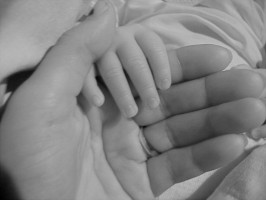The benefits of breastfeeding to mother and baby are seemingly endless, from protecting the baby from infection to reducing the risk of breast cancer in the mother. Although all parents should choose which way to feed their baby, for those that are keen to continue breastfeeding following their return to work, what laws assist in them achieving that aim?
Employers legally have to provide breastfeeding mothers with:
- Health and Safety protection;
- Rest facilities; and
- Protection from indirect discrimination and harassment.
Employers must comply with Health and Safety law in relation to breastfeeding mothers. If you work with hazardous substances, which pose a risk whilst you are breastfeeding, then your employer must transfer you to a suitable alternative position whilst you are breastfeeding.
Employers are required to provide a space for breastfeeding mothers to rest and lie down if they need to. Practically, this often doubles as a space for employees to breastfeed/express milk if they need to.
All employees have the possibility to make a request for flexible working when you have been employed for at least 26 weeks, you should also check your employment contract and internal policies, to see if you have any extended rights/benefits when it comes to breastfeeding. It may be that, by changing or reducing your hours, you are able to continue to breastfeed unaffected. If your employer refuses your request without a good business reason, then in some instances you may have a claim for indirect discrimination. You should ideally make any request for flexible working at least 2 months before you plan on going back to work to give you and your employer ample time to discuss your needs.
It is not directly the case however, that employers must provide specific rest breaks for employees to breastfeed/express milk at work, as there are no laws that provide express guidance on the issue. However, the Equality Act 2010 does consider it sex discrimination for employers who failed to assess or take action in regard to health and safety risks for breastfeeding women. Therefore, as providing your employees with breastfeeding breaks will reduce health risks, this practice should be encouraged.
Employers must also conduct risk assessments which consider the risks to a breastfeeding mother and must consider taking reasonable action in order to change working conditions/hours based on this risk assessment.
In the recent legal case of McFarlane & Ambacher v EasyJet Airline Co Ltd, EasyJet refused to provide shorter and personalised timetables to 2 cabin crew members who were breastfeeding. Both of these mothers had received letters from their doctors stating that they should not be working for longer than eight hours, because of the risk to them during breastfeeding. EasyJet only offered the mothers ground based work for a period of six months. The Employment Tribunal agreed that it was the responsibility of all employers to continue to protect the health and safety of mothers and provide suitable alternative work for as long as they are breastfeeding.
If you are unsure on your rights and are planning a return to work or feel that you have been treated unfairly because of breastfeeding, reach out to the friendly family law team here at A City Law Firm, who will be delighted to assist you.

